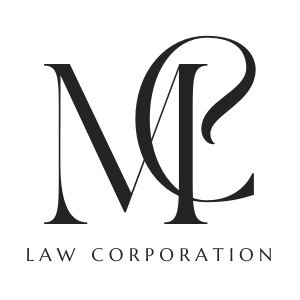Best ADR Mediation & Arbitration Lawyers in Singapore
Share your needs with us, get contacted by law firms.
Free. Takes 2 min.
Or refine your search by selecting a city:
List of the best lawyers in Singapore
Singapore ADR Mediation & Arbitration Legal Articles
Browse our 1 legal article about ADR Mediation & Arbitration in Singapore written by expert lawyers.
- Mediation: Keeping disputes out of court
- To all business owners, managers, and executives. You start your business. You have a dispute. One thing that you will definitely regret in such a case is not having a mandatory Mediation Clause in your agreements.Singapore is at the forefront of the movement to encourage mediation instead of more abrasive... Read more →
About ADR Mediation & Arbitration Law in Singapore
Alternative Dispute Resolution (ADR) encompasses methods like mediation and arbitration that aim to resolve disputes without resorting to traditional litigation. In Singapore, ADR is widely recognized as an effective tool for resolving commercial and civil disputes. Mediation involves a neutral third party helping the disputing parties reach a mutual agreement, while arbitration involves a binding decision made by a neutral arbitrator or panel. Singapore is known for its robust legal framework and supportive infrastructure for ADR, with institutions such as the Singapore International Arbitration Centre (SIAC) and the Singapore Mediation Centre (SMC) playing pivotal roles.
Why You May Need a Lawyer
There are numerous scenarios where engaging a lawyer specializing in ADR can be beneficial:
- Complex Dispute: When the dispute involves intricate legal issues or substantial amounts at stake.
- Agreement Drafting: To draft or review ADR clauses in contracts to ensure they are enforceable.
- Representation: To represent you during mediation or arbitration sessions to secure favorable outcomes.
- Enforcement: To aid in enforcing or challenging arbitration awards or mediated settlements.
- Guidance: To provide legal advice on the choice between mediation, arbitration, or other forms of dispute resolution.
Local Laws Overview
Singapore’s legal system provides a strong foundation for ADR, supported by key legislation such as the Arbitration Act, the International Arbitration Act, and the Mediation Act. These laws govern the conduct and enforceability of ADR processes, ensuring that they are fair and efficient. The legal environment encourages international parties to choose Singapore as their preferred seat for arbitration due to its neutrality, transparency, and experienced judiciary.
Frequently Asked Questions
What is ADR?
ADR, or Alternative Dispute Resolution, refers to out-of-court processes like mediation and arbitration used to resolve disputes.
How does mediation differ from arbitration?
Mediation is a facilitated negotiation led by a mediator, while arbitration involves a binding decision made by an arbitrator.
Is an arbitration award enforceable in Singapore?
Yes, arbitration awards are legally binding and enforceable through Singapore’s courts as laid out in the International Arbitration Act.
Can I choose Singapore for my international arbitration?
Yes, Singapore is a popular choice for international arbitrations due to its robust legal framework and reputation for neutrality.
What should be included in an arbitration clause?
An arbitration clause should specify the seat of arbitration, the applicable law, the number of arbitrators, and the arbitration rules governing the process.
Are mediation settlements binding?
Yes, mediation settlements can be made binding and are enforceable as contracts, and under the Singapore Mediation Act, certain agreements can be registered as court orders.
How long does the ADR process take in Singapore?
The duration varies depending on the complexity of the issue, but ADR processes typically resolve disputes more quickly than traditional litigation.
How can I ensure a fair arbitration process?
Choose reputable arbitrators and ensure the arbitration agreement clearly outlines the rules and procedures to be followed.
What happens if one party does not comply with a mediated agreement?
If the mediated settlement is registered as a court order, non-compliance can lead to legal enforcement actions similar to breaching a contract or court order.
Do I need a lawyer to participate in ADR?
While not mandatory, having a lawyer can provide strategic advantages and ensure your rights and interests are adequately represented.
Additional Resources
Consider reaching out to the following resources for more information or assistance:
- Singapore International Arbitration Centre (SIAC)
- Singapore Mediation Centre (SMC)
- The Law Society of Singapore's ADR Practitioners
- Ministry of Law, Singapore
Next Steps
If you require legal assistance in ADR, consider the following steps:
- Consult with a qualified ADR lawyer to evaluate your case and determine the most suitable ADR process.
- Conduct thorough research or seek recommendations to identify experienced ADR practitioners in your area.
- Prepare all necessary documentation and evidence to support your position during ADR proceedings.
- Discuss potential outcomes and strategies with your legal advisor to ensure alignment with your objectives.
- Ensure clear communication with involved parties and your legal team throughout the ADR process.
Lawzana helps you find the best lawyers and law firms in Singapore through a curated and pre-screened list of qualified legal professionals. Our platform offers rankings and detailed profiles of attorneys and law firms, allowing you to compare based on practice areas, including ADR Mediation & Arbitration , experience, and client feedback.
Each profile includes a description of the firm's areas of practice, client reviews, team members and partners, year of establishment, spoken languages, office locations, contact information, social media presence, and any published articles or resources. Most firms on our platform speak English and are experienced in both local and international legal matters.
Get a quote from top-rated law firms in Singapore — quickly, securely, and without unnecessary hassle.
Disclaimer:
The information provided on this page is for general informational purposes only and does not constitute legal advice. While we strive to ensure the accuracy and relevance of the content, legal information may change over time, and interpretations of the law can vary. You should always consult with a qualified legal professional for advice specific to your situation.
We disclaim all liability for actions taken or not taken based on the content of this page. If you believe any information is incorrect or outdated, please contact us, and we will review and update it where appropriate.
Browse adr mediation & arbitration law firms by city in Singapore
Refine your search by selecting a city.












